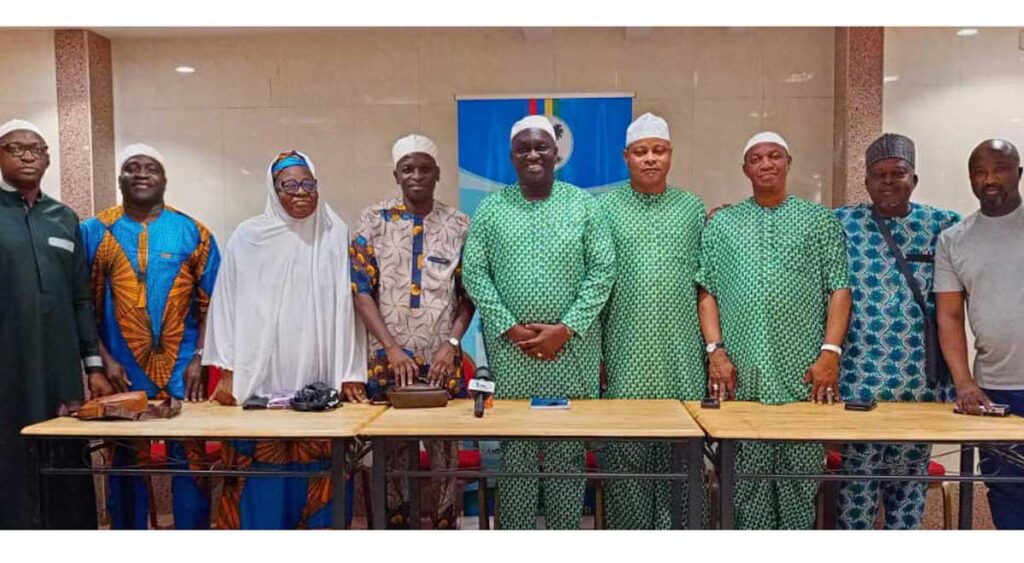
The discriminatory and unconstitutional practice of setting age limits for job seekers apart from worsening the country’s unemployment crisis, also has the capacity to make those above 30 years of age jobless for life. Stakeholders want the discriminatory policy urgently done away with as the number of young graduates seeking job opportunities rises. SILVER NWOKORO, reports.
Many companies, including local and foreign ones that are operating in the country, have put in place strange and illegal age-limiting policies that have ensured that countless employable Nigerians are deprived of job opportunities based on their age, regardless of their skills and competencies.
The unfortunate practice, which has been on for a long period has serious implications on the wellbeing of the nation’s youths, while being beneficial to its proponents.
For instance, due to perennial industrial conflicts between governments and management of public schools, students of these schools are only certain of their admission dates, as that of their graduation is never guaranteed. Put differently, most four and five-year academic programmes spill into five and six years or even more because of strike actions.
In their bid not to lose out altogether, many jobseekers, with support from morally deficient parents and guardians, have resorted to beating the unconstitutional trap, by falsifying their ages through sworn affidavits with the active connivance of corrupt court officials.
Painfully, this development has rendered many employable Nigerians jobless and some of them pushed into various crimes, including Internet fraud.
In several vacancy publications, most companies ask applicants that are beyond 25, 26, or 27 years age limits not to bother applying, as they would not be considered for employment.
Commercial banks, other financial institutions, restaurants, those in the hospitality industry, aviation, oil and gas, among others are highly involved in this practice.
Apart from private companies, some public institutions have also adopted the ugly practice this policy, including security agencies, although their reason for limiting the age of recruitment is very understandable.
Narrating her experience Adaugo Okonwo, a civil engineering graduate from Michael Okpara University, said that employers have discriminated against her on age grounds in the last eight years that she has been job-hunting after losing two academic sessions to industrial actions embarked upon by academic staff.
So, by the time that she was done with the National Youth Service Corps (NYSC) scheme, she was beyond the mark set by many employers of labour.
Jimoh Ajulo, a computer science graduate is facing a similar challenge. He became ready for the job market at 28, but to his frustration, most prospective employers are not looking his way because of the age barrier.
Across the country, millions of young Nigerians share similar fate with Okonkwo and Ajulo.
Worried by the development, the Senate, recently against the discriminatory practice, and also passed a resolution to abolish age limitations in job advertisements. It also called on the Federal Government to implement policies that promote equal opportunity and fair treatment in employment matters.
It urged the Federal Ministry of Labour, Employment and Productivity, and other relevant agencies to restrict and discourage public and private employers from depriving millions of job-seekers employment opportunities merely for not meeting age requirements.
The resolutions of the Senate followed a motion titled: “Age Requirement Precondition for Employment in Nigeria, Urgent Need for Intervention,” which was sponsored by Senator Abba Moro of the Peoples Democratic Party (PDP), Benue South.
Presenting the motion, Senator Moro said age limit as precondition for employment violates Chapter 4, Section 42(2) of the 1999 Constitution of Nigeria (as altered), which guarantees every citizen the right to freedom from discrimination.
He also referred to the provision of the International Labour Organisation (ILO), which defines employment discrimination in economic terms, as a violation of human rights that entails a waste of human talents with detrimental effects on productivity and economic growth, and generates socioeconomic inequalities that undermine social cohesion and solidarity, and act as a brake on the reduction of poverty.
Moro said it was pathetic that a graduate in Nigeria who could not get a job upon graduation, and decided to go back to school with the hope that a higher qualification, vis-a-vis a second or masters degree could give him a better employment opportunity is thrown into a career paradox when upon completion of his programme, he is above employment age, and therefore not employable.

The lawmaker further said it was ironic that a graduate in Nigeria could serve in the NYSC programme at age 30, but the same cannot be gainfully employed thereafter because he/she is now above 30 years, a situation that is a flagrant breach of his fundamental rights.
“The Nigerian private sector is age biased when it comes to recruitment and employment. The public sector is also involved in this discrimination,” he stated, adding that, “The 1999 Constitution as (altered) in section 42 condemns discrimination on account of gender, culture, circumstances of birth, ethnicity, etc, but does not specifically mention age. However, when read ejusdem generis (together in context), it will include age. When that is done, the age limit becomes a constitutional violation.”
Amaechi Ekwe, an Abuja based lawyer said that that the illegal policy is used by employers of labour to exploit and discriminate. He, however, noted that there are jobs and roles that do not necessarily require age limit to be done, such as ICT, legal, health, among others.
His words: “What is necessary here is knowledge and experience, but what we see is that some parastatals and agencies of government still insist on job-seekers being of a certain age limit to be qualified for employment all for selfish purposes. Employers of labour are bent on taking the youngest qualified persons because of their life expectancies, working for a longer time with the organisation, and applying their knowledge for the benefit of the organisation for lengthy periods. They want you to be with them for longer years and apply your proficiency and expertise, which according to them, may not be easily found on people that are full of years.
“There are jobs and roles that require age limits for the employee to be effective. This largely applies to sportsmen. If there is an age limit in football, there will be no problem. It won’t amount to discrimination because a young person will definitely run faster or outsmart an older person in sporting activities, but not when commercial banks are chasing 22-year-old graduates to work with them.
“By this bias, the financial institutions bar, and stop every other applicant from working at the bank. They opt for young people that will not challenge their oppressive tendencies. This is quite exploitative, and these private sector employers in Nigeria exploit the youths.”
Ekwe declared that age limit for jobs is discriminatory and makes those who are 30 years and above jobless for life,” he said.
Also lamenting the development, the Convener, Justice for Peace and Development Initiative, Nathaniel Ngwu, said that Section 59 of the Labour Act Vol.8 Laws of the Federation 2004, provides in Sub (2) that “no young person under the age of 15 years shall be employed, or work in any industrial undertaking: provided that this subsection shall not apply to work done by young persons in technical schools or similar institutions, if the work is approved and supervised by the Ministry of Education (or corresponding department of government) of a state.”
He noted that part of the intentions of the draftsmen was to avoid enslaving the young persons with overburdened or weighty jobs, which may have health implications on such persons.
He, however, stated that the advent of modern gadgets or appliances which can be remotely used for improved work output resonates better with young people.
“Section 42 of the 1999 Constitution provides for the right to freedom from discrimination but didn’t mention discrimination for the reason of age, rather its emphasis is based on citizens of a particular community, ethnic group, place of origin, sex, religion, or political opinion. So, parliamentarians will have a holistic huddle of reviewing not just the labour law, but the Constitution or any other related legislation, including government policy documents to delegitimise the practice.
“Why I agree with the need to consider reviewing the age brackets for employment and disengagement from employment, the government, particularly the legislature should be bothered about creating job opportunities by providing an enabling environment for more entrepreneuring opportunities.
“The government should begin to profile all teeming graduates that are being churned out of the universities yearly and devise a means of re-training them in various areas of endeavour either within the few companies are operating in the country, or outside the country for long-term service. We also need a youth engagement strategy, which will take away our youths from the streets, and cure them of restiveness.”
Ngwu stressed that Nigerians are tired of increasing violence, banditry, kidnapping, and criminality that is being perpetuated allegedly by energetic, resourceful, and healthy youths that are within the age bracket that should be moving the country forward.
The Constitution, he said, is due for a review to allow graduates and youths to support the country with their resourcefulness and energy, adding that many young Nigerian are already competing with youths from other parts of the world in terms of information technology and other areas of development.
A Lagos lawyer, Jeff Kadiri, is also of the view that age limit for employment is a discriminatory practice, stressing that it should not be a barrier to anyone’s aspirations in life. “Let employers decide who they will employ based on the capacity of the aspiring employee,” he noted.
Explaining why his firm adopts such a policy, a United Bank of Nigeria (UBA) Human Resource personnel, Chukwuka Mesirionye told The Guardian that age restriction is rampant in early life career positions (graduate trainee roles) because companies, have a projected structure that typically takes them a time span of 15 to 20 years for a graduate trainee to become a Senior Executive.
“The idea is to have vibrant people who can stay for long on the job. Also, graduate trainees are hired so that they can learn the culture of the organisation. It is easier to do so with younger people than people who are a little older and might have other experiences. The idea at this stage is to learn, then earn, but for older people the focus for them is earning because they have families with more responsibilities,” Mesirionye explained.











